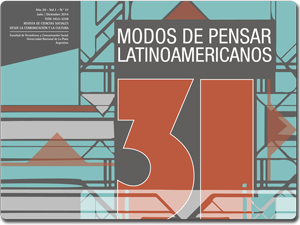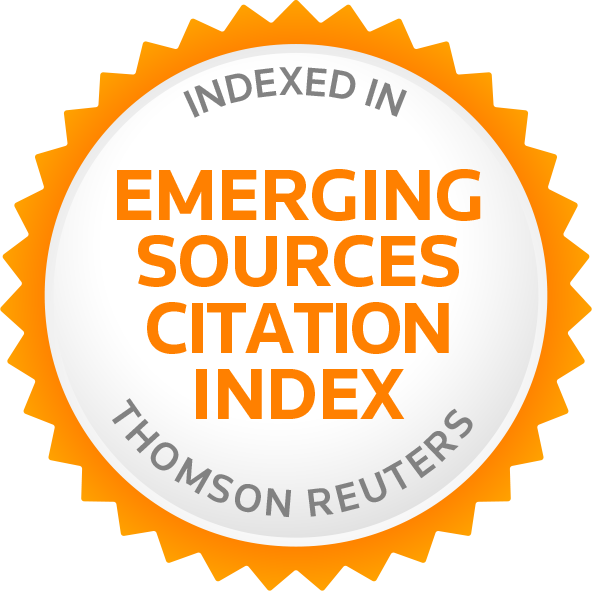The ensayos,the south and the subaltern
Keywords:
Latin American thought, south epistemology, ensayos, subaltern studiesAbstract
Refer to Argentina and nuestro continent, introduces us epistemological disputes localizedin a territory vast and heterogeneous. This fight, usually accompanied by other debates around cultural battles, the counter-hegemonic constructions y the struggles against colonial forms. The aim of this paper is to contribute to these debates from the reading of three intellectual projects for the production of social knowledge in Latin America: the construction of an Epistemology of the South(2009), proposed by Boaventura de Sousa Santos, rescuing ensayosas privileged sources of social thought on this continent and studies that propose analytical novel trusses, as the Grupo latinoamericano de estudios subalternos (1998).Downloads
Downloads
Published
How to Cite
Issue
Section
License
The acceptance of an original by the journal implies the non-exclusive transfer of the patrimonial rights of the authors in favor of the publisher, who allows the reuse, after its edition (postprint), under a Creative Commons License Attribution-NonCommercial-ShareAlike 4.0 International.
According to these terms, the material can be shared (copy and redistribute in any medium or format) and adapted (remix, transform and create another work from the material), provided that a) the authorship and the original source of their publication (magazine and URL of the work) are cited, b) is not used for commercial purposes and c) the same terms of the license are maintained.
The assignment of non-exclusive rights implies that after postprint in Oficios Terrestres authors may publish their work in any language, media and format; in that case, it is requested that they signal that the material was originally published by this journal.
Assignment also entails the authors’ authorization for the work to be collected by SEDICI, the institutional repository of the Universidad Nacional de La Plata, and for it to be indexed in the databases that the publisher thinks appropriate for enhancing the visibility of the published work and its authors.
In addition, the journal encourages authors to submit their works to other institutional and thematic repositories after their publication in Oficios Terrestres, under the assumption that offering society unrestricted access to scientific and academic production contributes to a greater exchange in global knowledge.







_(Custom)11.jpg)




.png)






















